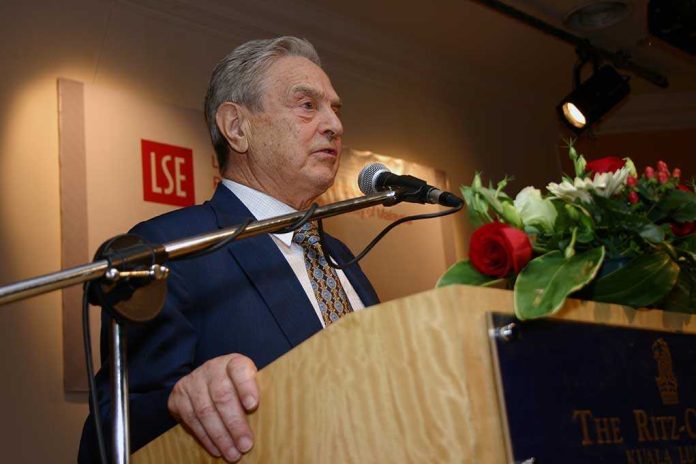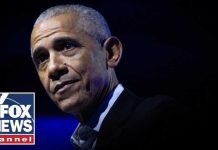
A major Southern Baptist entity has finally cut ties with a Soros-backed immigration coalition, signaling a decisive move away from controversial funding and liberal policy alliances that have long frustrated conservative churchgoers.
Story Snapshot
- The Ethics & Religious Liberty Commission (ERLC) of the SBC has ended its partnership with the Evangelical Immigration Table (EIT), citing a need for independence on immigration issues.
- This split follows years of concerns about EIT’s connections to leftist donor networks, including George Soros.
- The ERLC’s decision marks a shift toward more conservative, autonomous advocacy on immigration, distancing the SBC from progressive faith-based lobbying.
- The move comes as Trump’s administration escalates its crackdown on illegal immigration, intensifying scrutiny of faith groups’ policy positions.
ERLC’s Split: A Turning Point for Conservative Evangelicals
The Ethics & Religious Liberty Commission (ERLC), the Southern Baptist Convention’s public policy arm, announced in September 2025 that it would sever ties with the Evangelical Immigration Table (EIT). The decision was made public at a trustees meeting led by Acting President Miles Mullin, who emphasized the need for a more independent approach to immigration policy. The EIT, a coalition of evangelical groups advocating reform, has been criticized for accepting funding from organizations linked to progressive donor George Soros, raising alarms for conservatives wary of outside influence on church policy.
Founded in 2012, the EIT included the ERLC as a founding member alongside organizations like World Relief, World Vision, and the National Association of Evangelicals. Over time, the coalition’s advocacy for comprehensive immigration reform—often tied to left-leaning principles of open borders and amnesty—sparked controversy within the SBC. Conservatives grew increasingly concerned about the SBC’s associations with groups perceived as undermining core values such as border security, rule of law, and fiscal responsibility.
Political Shifts and Heightened Scrutiny
The ERLC’s split from the EIT comes amid a backdrop of dramatic changes in U.S. immigration policy under President Trump’s second administration. Since January 2025, Trump has rolled back numerous Biden-era policies, declaring a national emergency at the southern border, ending catch-and-release, and suspending most refugee admissions. The administration’s aggressive enforcement—mandating detention for immigrants charged with crimes and deploying ICE for raids even in sensitive locations—has created a climate of uncertainty among immigrant communities and faith-based ministries.
The ERLC’s move appears aligned with rising grassroots frustration over what many see as unchecked illegal immigration and progressive overreach. By distancing itself from EIT and its Soros-linked funding, the ERLC signals renewed commitment to conservative principles, including sovereignty, law enforcement, and the protection of family and constitutional rights.
Stakeholder Motivations: Conservatism Versus Coalition Advocacy
For years, the ERLC has been tasked with representing Southern Baptist values in public policy debates. Its partnership with EIT reflected efforts to balance compassion for immigrants with respect for the law, but internal tensions mounted as EIT’s funding sources and political alliances became public. Many in the SBC’s conservative base viewed alliances with progressive donors and open-border advocacy as threats to American values and church credibility. The ERLC’s leadership, seeking to restore trust, opted for autonomy—prioritizing policies in line with traditional family values, border enforcement, and responsible governance.
The EIT, meanwhile, continues to promote comprehensive reform, arguing that Christian compassion requires a pathway to citizenship for undocumented immigrants, except those with violent criminal records. However, the ERLC’s withdrawal reduces the coalition’s influence among conservative evangelicals, potentially fragmenting faith-based advocacy and reshaping the policy landscape.
Impact on Immigration Policy and Evangelical Advocacy
The immediate effect of the ERLC’s break is a realignment of the SBC’s public policy priorities. With the Trump administration escalating deportations and tightening border controls, the ERLC’s independent posture may reinforce harder lines on illegal immigration within evangelical circles. Critics warn that distancing from coalitions like EIT could limit bipartisan efforts for reform, but supporters argue that it protects the denomination from liberal agendas and external manipulation.
Southern Baptist Entity Finally Announces Split from Soros-Backed Group via @WestJournalism https://t.co/orvNKfBrAT
— FRANK (@FrankLugiano) September 23, 2025
Long-term, this move may embolden other conservative faith organizations to reevaluate partnerships with progressive coalitions. The ERLC’s stance reflects broader frustrations among conservatives who see unchecked immigration, globalist funding, and government overreach as threats to the nation’s constitutional foundations. The split also highlights ongoing debates about the role of compassion versus enforcement, fiscal responsibility, and the defense of traditional American values in church-led advocacy.
Sources:
ERLC breaks ties with the Evangelical Immigration Table — Baptist Standard
Diverse Ethnic SBC Fellowships Issue Joint Statement on Immigration — The Baptist Record
ERLC Cuts Ties with Evangelical Immigration Table — Christian Post














